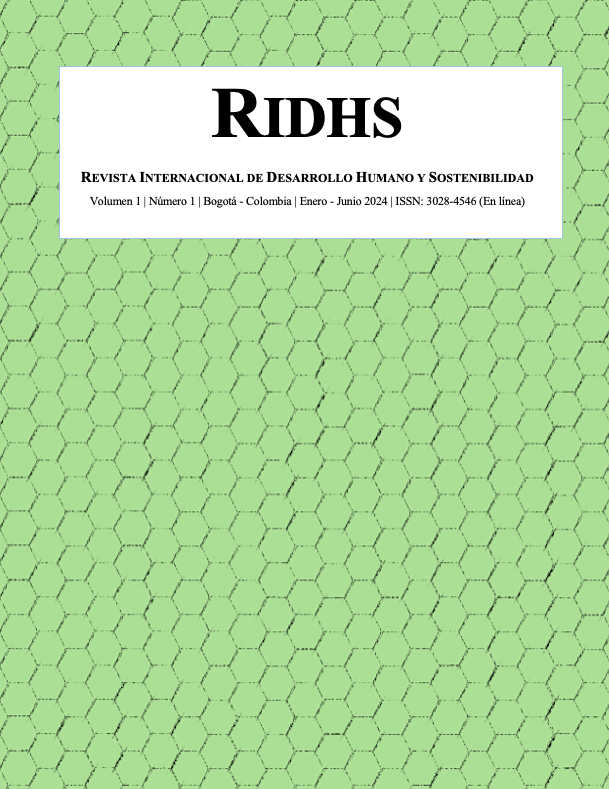Latent destruction through substitution of Haitian society: an epistemological and historical perspective
DOI:
https://doi.org/10.51660/ridhs11178Keywords:
genocide, economicide, ethnocide, linguicide, historical epistemologyAbstract
This article aims to understand and explain through a reflection focused on the historical epistemology and habitus of Bourdieu, how the Western countries, specifically, United States of America, Spain, Germany, Canada, and France are carefully and subtly planning Haiti's collapse by substitution. It highlights five methods of latent destruction in which is inscribed the setting of gradual deconstruction to replace the Haitian society by imposing a soci-political environment in perpetual instability that encourages young people to flee their country. At the end of the reflection, the article conxludes that the Western countries want to take over the land of Haiti and drive out the black savages of the Caribbean (as they used to treat them) who inhabited it.
Downloads
References
Abraham, J. (2018). L'établissement d'un lien entre ségrégation scolaire et rapports sociaux d'inégalité. Thèse de doctorat. Port-au-Prince: ISTEAH.
Abraham, J. (2020). L'école haitienne, entre ségrégation et rapports sociaux d'inégalité. Paris: L'Harmattan.
Blot, L. (1991). L'église et le système concordataire en Haiti.Étude du concordat de 1860, signé entre le Saint Siège et la République d'Haiti. Port-au-Prince.
Bourdieu, P. (1987). Choses dites. Paris: Éditions de Minuit.
Cassen, B. (1997). Haiti dans la spirale du désespoir. Monde Diplomatique, 24-25.
Castor, S. (1988). Le massacre et les relations haitiano-dominicaines. Port-au-Prince: Le Natal.
Chamoun, M. (2008). Exterminer pour survivre. Topique. Association Internationale Interaction de la Pschanalyse, volume 1, no. 102, 41-49.
Clorméus, L. (2013). Haiti et le conflit des deux "France". Chrétiens et Sociétés, 63-84.
Cloutier, J. (1987). Note: the closing of the Haitian American Sugar Company. Haiti Times.
Diederich, Bernard and Burt, Al. (2005). Papa Doc and the Tontons Macoutes. Princeton: Markus Wiener.
Dobbs, M. (2000). Free Market left Haiti's rice Growers behing. Washington Post.
Étienne, S. (2007). L'occupation américaine comme conséquence de l'effondrement de l'État haitien (1915-1935). In "L'énigme haitienne: Échec de l'État moderne en Haiti. Presses de l'université de Montréal, 157-184.
Gaillard, R. (1981). Les blancs débarquent, III. Premier écrasement du cacoisme. Port-au-Prince: Le Natal.
Hurbon, L. (2004). Religion et lien social. L'Église et l'État moderne en Haiti. Paris: Cerf.
Janvier, L. J.(1884). Haiti for Haitian. Paris: Brandon R. Byrd; Chelsea Stieber.
Nicholas, A. (2011). Linguicide. Briarpatch, 5-8.
Palmiste, C. (2012). Génocide par substitution:usages et cadre théorique. Frédéric Angleriel. Les outremers français:actualités et études, volume 1 l'Harmattan.
Piarroux, R., Barrais, R., Faucher, B., Haus, R., Piarroux, M., Gaudart, J., et Raoult, D. . (2011). Understanding the cholera epidemic, Haiti. Emerging infectious diseases, 17(7), 1161.
Pierre, J. (2024). Révolution en Haiti contre l'Emprire américain, l'histoire. (P. Lottaz, Interviewer)
Pierre-Charles, G. (2000). Haiti jamais plus! Les violations des droits de l'homme à l'époque des Duvaliers. Port-au-Prince: Éditions du CRESFED.
Schumpeter, J. (1942). Capitalism, Socialism and Democracy. New York: Harper.
Slavicek, M. (2022). Haiti:Comment la France a obligé son ancienne colonie à lui verser des indemnités compensatoires. New York Times.
Temple, D. (1998). De l'économicide au génocide. Retrieved from http://dominique.temple.free.fr/reciprocite-php: http://dominique.temple.free.fr/reciprocite-php
Zwisler, J. (2017). Linguicid and Identity. A multi-generational study in indigenous identity. Lambert Academic Publishing.
Downloads
Published
Issue
Section
License
Copyright (c) 2024 International Journal of Human Development and Sustainability

This work is licensed under a Creative Commons Attribution-NonCommercial-ShareAlike 4.0 International License.
Articles are published under the terms of a licence that permits use, distribution and reproduction in any medium, provided that the original work is properly cited. Ed&TIC retains the proprietary rights to the published works and actively promotes the reuse of these works under the terms of the aforementioned licence, which encourages the dissemination of knowledge and collaboration in the academic community.


